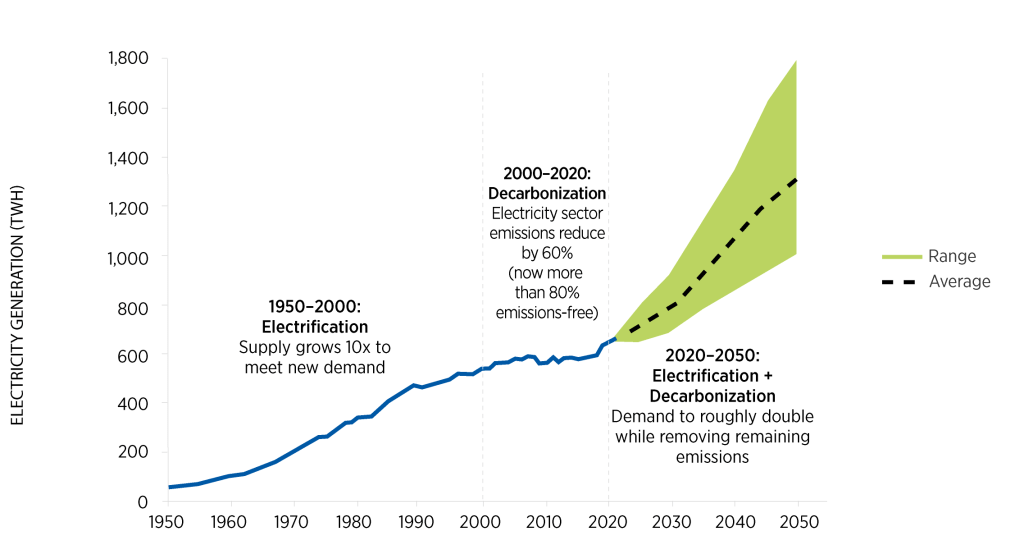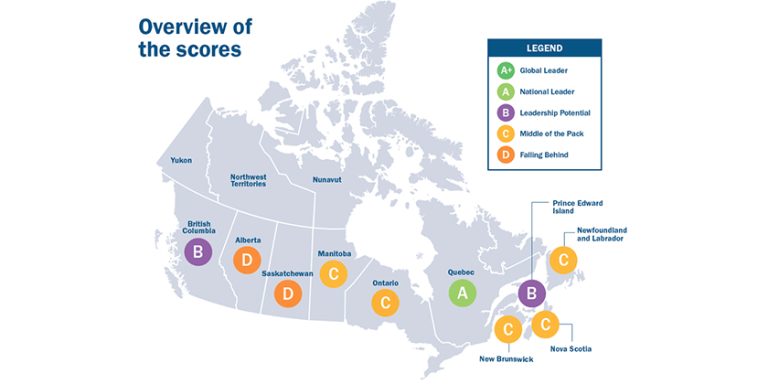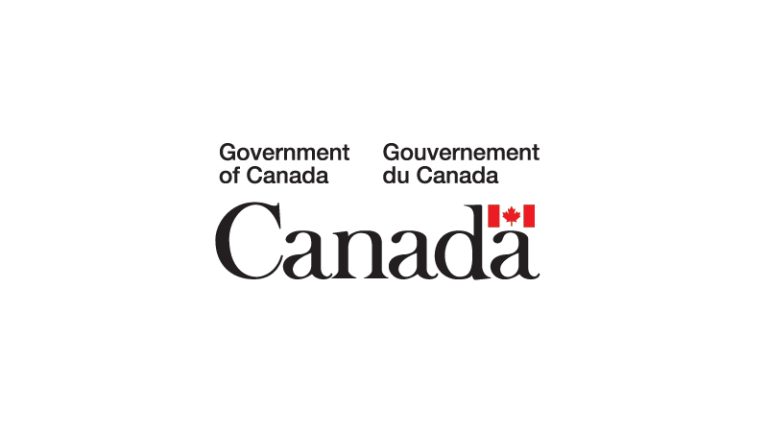Powering Canada: A Blueprint for Success – Final Report from Canada Electricity Advisory Council
June 10, 2024
A clean electricity grid is central to our fight against climate change. In fact, studies show we will not meet net-zero emissions by 2050 without decarbonizing our grid. Equally important is growing the size of the grid to meet the needs of current and future Canadian homes and businesses, which projections show could more than double by 2050 in a net-zero context. Successfully meeting our clean electricity goals is not only a priority for the Government of Canada but could deliver nearly 40 percent of our long-term climate targets. Critically, these goals must be achieved in a manner that ensures electricity is affordable and reliable. Canadians in every corner of the country must be able to conveniently and affordably heat their homes, turn on their lights and drive their vehicles, and this federal government has been working hard to ensure electricity across the country is reliable, affordable and clean.

The Council
The Minister of Natural Resources convened the Canada Electricity Advisory Council (“the Council”) in May 2023 to advise on policies to enable the electricity sector to play its pivotal role in Canada’s transition to net-zero.
The Council is an independent body of 19 electricity sector leaders from every region in Canada. During its 12-month mandate, the Council:
- Held 87 meetings, including full Council and Working Group meetings
- Heard from 117 stakeholders, through 66 private briefings and 72 written submissions
- Obtained full consensus on 28 key recommendations to the federal government
As the recommendations detailed in this report attest, the Council has found that there can be a viable route to achieving these goals – one that respects regional disparities, safeguards reliability, maintains affordability and cost-competitiveness, respects Indigenous rights, and includes Indigenous communities.
To be sure, there will be formidable challenges, risks and trade-offs along the way. But the opportunities for Canada’s economy – and the risks to future generations should the country fail in this endeavour – are far more substantial.
A Blueprint for Success
Launched in May 2023, the Canada Electricity Advisory Council is an independent panel of electricity sector subject matter experts from every region of the country, chaired by Philippe Dunsky. Council members included Indigenous partners, electricity sector utilities, regulators and think tanks. Over the Council’s one-year mandate, it undertook 80 meetings and engagement with over 100 partners.
The consensus recommendations in the report of the independent Council speak to the need to both address climate change and ensure we seize the massive economic opportunities enabled through the transition to a low-carbon economy. The report highlights that a clean, reliable grid will save Canadians money into the future.
With over 80 percent of Canada’s electricity already emissions-free, Canada starts from a place of strength, which we can leverage to ensure continued success and prosperity. For example, Canada’s non-emitting grids have been key to securing over $50 billion in investments in the electric vehicle supply chain in the last two years alone and will be crucial to Canada’s success in the emerging global hydrogen market.
We thank the Council for the significant and important work it has done over this past year and for the guidance provided in its final report. Not only will these recommendations support the federal government as we move to bring forward the next steps to bring non-emitting, affordable energy to Canadians — including Canada’s first Clean Electricity Strategy, expected later this year — but they will also provide direction for provinces, territories, utilities, and stakeholders across the country.
Go HERE for the full report
Quick facts
- Canada is ahead. Approximately four in five Canadians live in provinces where electricity is already largely decarbonized (more than 90 percent non-emitting). Electricity supply varies across the country, and provinces and territories — which have jurisdiction over their electricity systems — may follow different paths as they move toward expanded and cleaner grids.
- Canada’s challenge is twofold: complete the process of decarbonizing our electricity, and grow our clean power supplies to meet the fast-growing demands of Canadian households, business and industry.
- To achieve its goals, Canada needs to rapidly expand its buildout of clean electricity infrastructure, roughly doubling it in a generation.
- Meeting Canada’s clean electricity goals alone can deliver nearly 40 percent of the country’s long-term climate commitments while powering a stronger, growth-oriented economy.
- If it is to succeed, the transition must be affordable and cost-competitive. Analysis prepared for the Council suggests this is possible, in large part because of the fuel savings that new electricity will create. By 2050, more than seven in 10 Canadian households can be expected to see net cost-savings as a result of switching to clean electricity, if the right measures are adopted and well executed.
- By embracing Indigenous Nations and communities as full partners in these projects, Canada has a unique opportunity to begin repairing the unequal relationship that has long dominated energy and resource development and to harness a powerful force for reconciliation.
- Federal-provincial-territorial collaboration is vital if all parts of Canada are to succeed. While the federal government can enable and support an effective, affordable, reliable and inclusive transition, most authority over electricity is and shall remain vested with provinces and territories.
- Launched in May 2023, the Clean Electricity Advisory Council is a panel of electricity sector subject-matter experts from every region of the country. Council members included primarily senior electricity sector leaders, as well as Indigenous partners and thought leaders.
- The Council’s mandate was to explore and provide independent advice to the Minister of Energy and Natural Resources and the Government of Canada on how federal policy can enable the growth and decarbonization of Canada’s electricity systems, in collaboration with the provinces, territories and with Indigenous partners.
- Throughout its one-year mandate, the Council held over 80 meetings and engaged with over 100 partners and stakeholders to better understand the opportunities, barriers and needs associated with Canada’s electricity systems. These meetings included provincial and territorial governments, federal officials, Indigenous partners and organizations, electric utilities, power producers, system operators, regulators, industry, think tanks, civil society organizations and members of the public.
Council membership
Pete Bothwell
Vice President, Energy Transition and Industry Relations, Canadian Utilities Ltd. (ATCO Electric)
Jason Dion
Senior Research Director, Canadian Climate Institute
Tim Eckel
Vice President (retired), SaskPower
Bob Elton
Former CEO, BC Hydro
Judith Ferguson
Executive Vice President
Nova Scotia Power Inc.
G.D. (Gerry) Forrest
Former Chair, Manitoba Public Utilities Board
Wendy Franks
CEO, Canadian Power-to-X Partners
(former CSO, Northland Power)
Chief Sharleen Gale
Chief, Fort Nelson First Nation
Chair, First Nations Major Projects Coalition
Lesley Gallinger
CEO, Independent Electricity System Operator (IESO)
John Gaudet
Former CEO
Maritime Electric Co.
Philippe Dunsky (Chair)
President
Dunsky Energy + Climate Advisors
Bruce Lourie
President, Ivey Foundation
Stephen MacDonald
President and CEO
EfficiencyOne
Kerry O’Reilly Wilks
Executive Vice President, TransAlta
Madeleine Redfern
Former Mayor, Iqaluit
COO, CanArctic Inuit Networks
Greg Robart
CEO, Smart Grid Innovation Network
Stéphanie Trudeau
Executive Vice President – Québec,
Énergir
Darlene Whalen
Former Chair and CEO, Newfoundland and Labrador Board of Commissioners of Public Utilities
Emily Whetung-MacInnes
Chief Emerita, Curve Lake First Nation
Director of Indigenous Partnerships, Ontario
Power Generation
Go HERE for the full report








